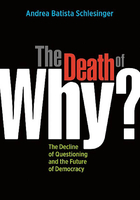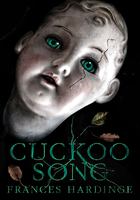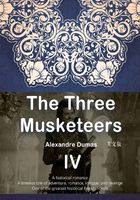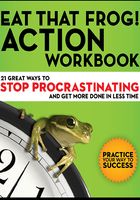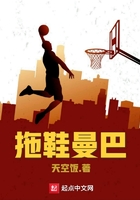Part III Previously Unpublished Fiction
"A Train Trip" represents the first four chapters of an unfinished and untitled Lardneresque novel. These scenes form a fine short story in the vein of "The Battler" and "Fifty Grand."
MY FATHER TOUCHED ME AND I WAS awake. He stood by the bed in the dark. I felt his hand on me and I was wide awake in my head and saw and felt things but all the rest of me was asleep.
"Jimmy," he said, "are you awake?"
"Yes."
"Get dressed then."
"All right."
He stood there and I wanted to move but I was really still asleep.
"Get dressed, Jimmy."
"All right," I said but I lay there. Then the sleep was gone and I moved out of bed.
"Good boy," my father said. I stood on the rug and felt for my clothes at the foot of the bed.
"They're on the chair," my father said. "Put on your shoes and stockings too." He went out of the room. It was cold and complicated getting dressed; I had not worn shoes and stockings all summer and it was not pleasant putting them on. My father came back in the room and sat on the bed.
"Do the shoes hurt?"
"They pinch."
"If the shoe pinches put it on."
"I'm putting it on."
"We'll get some other shoes," he said. "It's not even a principle, Jimmy. It's a proverb."
"I see."
"Like two against one is nigger fun. That's a proverb too."
"I like that one better than about the shoe," I said.
"It's not so true," he said. "That's why you like it. The pleasanter proverbs aren't so true." It was cold and I tied my other shoe and was finished dressing.
"Would you like button shoes?" my father asked.
"I don't care."
"You can have them if you like," he said. "Everybody ought to have button shoes if they like."
"I'm all ready."
"Where are we going?"
"We're going a long way."
"Where to?"
"Canada."
"We'll go there too," he said. We went out to the kitchen. All the shutters were closed and there was a lamp on the table. In the middle of the room was a suitcase, a duffel bag, and two rucksacks. "Sit down at the table," my father said. He brought the frying pan and the coffee pot from the stove and sat down beside me and we ate ham and eggs and drank coffee with condensed cream in it.
"Eat all you can."
"I'm full."
"Eat that other egg." He lifted the egg that was left in the pan with the pancake turner and put it on my plate. The edges were crisped from the bacon fat. I ate it and looked around the kitchen. If I was going away I wanted to remember it and say good-bye. In the corner the stove was rusty and half the lid was broken off the hot water reservoir. Above the stove there was a wooden-handled dish mop stuck in the edge of one of the rafters. My father threw it at a bat one evening. He left it there to remind him to get a new one and afterwards I think to remind him of the bat. I caught the bat in the landing net and kept him in a box with screen over it for a while. He had tiny eyes and tiny teeth and he kept himself folded in the box. We let him loose down on the shore of the lake in the dark and he flew out over the lake, flying very lightly and with flutters and flew down close over the water and then high and turned and flew over us and back into the trees in the dark. There were two kitchen tables, one that we ate on and one we did dishes on. They were both covered with oilcloth. There was a tin bucket for carrying lake water to fill the reservoir and a granite bucket for well water. There was a roller towel on the pantry door and dish towels on a rack over the stove. The broom was in the corner. The wood box was half full and all the pans were hanging against the wall.
I looked all around the kitchen to remember it and I was awfully fond of it.
"Well," said my father. "Do you think you'll remember it?"
"I think so."
"And what will you remember?"
"All the fun we've had."
"Not just filling the wood box and hauling water?"
"That's not hard."
"No," he said. "That's not hard. Aren't you sorry to go away?"
"Not if we're going to Canada."
"We won't stay there."
"Won't we stay there a while?"
"Not very long."
"Where do we go then?"
"We'll see."
"I don't care where we go," I said.
"Try and keep that way," my father said. He lit a cigarette and offered me the package. "You don't smoke?"
"No."
"That's good," he said. "Now you go outdoors and climb up on the ladder and put the bucket on the chimney and I'll lock up."
I went outside. It was still dark but along the edge of the hills it was lightening. The ladder was leaning against the roof and I found the old berry pail beside the woodshed and climbed the ladder. The leather soles of my shoes felt insecure and slippery on the rungs. I put the bucket over the top of the stove pipe to keep out the rain and to keep squirrels and chipmunks from climbing in. From the roof I looked down through the trees to the lake. Looking down on the other side was the woodshed roof, the fence and the hills. It was lighter than when I started to climb the ladder and it was cold and very early in the morning. I looked at the trees and the lake again to remember them and all around; at the hills in back and the woods off on the other side of the house and down again at the woodshed roof and I loved them all very much, the woodshed and the fence and the hills and the woods and I wished we were just going on a fishing trip and not going away. I heard the door shut and my father put all the bags out on the ground. Then he locked the door. I started down the ladder.
"Jimmy," my father said.
"Yes."
"How is it up there on the roof?"
"I'm coming down."
"Go on up. I'm coming up a minute," he said and climbed up very slowly and carefully. He looked all around the way I had done. "I don't want to go either," he said.
"Why do we have to go?"
"I don't know," he said. "But we do."
We climbed down the ladder and my father put it in the woodshed. We carried the things down to the dock. The motor boat was tied beside the dock. There was dew on the oilcloth cover, the engine, and the seats were wet with dew. I took off the cover and wiped the seats dry with a piece of waste. My father lifted down the bags from the dock and put them in the stem of the boat. Then I untied the bow line and the stern line and got back in the boat and held onto the dock. My father primed the engine through a petcock, rocking the wheel twice to suck the gasoline into the cylinder, then he cranked the flywheel over and the engine started. I held the boat to the dock with a twist of the line around a spile. The propeller churned up the water and the boat pulled against the dock making the water swirl through the spiles.
"Let her go, Jimmy," my father said and I cast off the line and we started away from the dock. I saw the cottage through the trees with the windows shuttered. We were going straight out from the dock and the dock became shorter and the shoreline opened out.
"You take her," my father said and I took the wheel and turned her out toward the point. I looked back and saw the beach and the dock and the boat house and the clump of balm of Gilead trees and then we were past the clearing and there was the cove with the mouth of the little stream coming into the lake and the bank high with hemlock trees and then the wooded shoreline of the point and then I had to watch for the sand bar that came way out beyond the point. There was deep water right up to the edge of the bar and I went along the edge of the channel and then out around the end seeing the channel bank slope off underwater and the pickerel weed growing underwater and sucked toward us by the propeller and then we were past the point and when I looked back the dock and the boat house were out of sight and there was only the point with three crows walking on the sand and an old log half covered in the sand and ahead the open lake.
I heard the train and then saw it coming, first in a long curve looking very small and hurried and cut into little connected sections; moving with the hills and the hills moving with the trees behind it. I saw a puff of white from the engine and heard the whistle then another puff and heard the whistle again. It was still early in the morning and the train was on the other side of a tamarack swamp. There was running water on each side of the tracks, clear spring water with a brown swamp bottom and there was a mist over the center of the swamp. The trees that had been killed in the forest fires were grey and thin and dead in the mist but the mist was not foggy. It was cold and white and early morning. The train was coming straight down the tracks now getting closer and closer and bigger and bigger. I stepped back from the tracks and looked back at the lake with the two grocery stores and the boat houses, the long docks going out into the water and close by the station the gravelled patch around the artesian well where the water came straight up in the sunlight out of a brown water-film covered pipe. The water was splashing in the fountain basin, in back was the lake with a breeze coming up, there were woods along the shore and the boat we had come in was tied to the dock.
The train stopped, the conductor and the brakeman got down and my father said good-bye to Fred Cuthbert who was going to take care of the boat in his boat house.
"When will you be back?"
"I don't know, Fred," my father said. "Give her a coat of paint in the spring."
"Good-bye, Jimmy," Fred said. "Take good care of yourself."
"Good-bye, Fred."
We shook hands with Fred and got on the train. The conductor got on in the car ahead and the brakeman picked up the little box we had stepped up on and swung aboard the train as it started. Fred stood there on the station platform and I watched the station, Fred standing there, then walking away, the water splashing up out of the pipe in the sun and then ties and the swamp and the station very small and the lake looking different and from a new angle and then we were out of sight and crossed the Bear River and went through a cut and there were only the ties and the rails running back and fireweed growing beside the track and nothing more to look at to remember. It was all new now looking out from the platform and the woods had that new look of woods you do not know and if you passed a lake it was the same way. It was just a lake and new and not like a lake you had lived on.
"You'll get all cinders out here," my father said.
"I guess we'd better go in," I said. I felt funny with so much new country. I suppose it really looked just the same as the country where we lived but it did not feel the same. I suppose every patch of hardwood with the leaves turning looks alike but when you see a beech woods from the train it does not make you happy; it only makes you want the woods where you live. But I did not know that then. I thought it would all be like where we lived only more of it and that it would be just the same and give you the same feeling, but it didn't. We did not have anything to do with it. The hills were worse than the woods. Perhaps all the hills in Michigan look the same but up in the car I looked out of the window and I would see woods and swamps and we would cross a stream and it was very interesting and then we would pass hills with a farmhouse and the woods behind them and they were the same hills but they were different and everything was a little different. I suppose, of course, that hills that a railroad runs by can not be the same. But it was not the way I had thought it was going to be. But it was a fine day early in the fall. The air was fine with the window open and in a little while I was hungry. We had been up since before it was light and now it was almost half past eight. My father came back down the car to our seat.
"How do you feel, Jimmy?"
"Hungry."
He gave me a bar of chocolate and an apple out of his pocket.
"Come on up to the smoker," he said and I followed him through the car and into the next one ahead. We sat down in a seat, my father inside next to the window. It was dirty in the smoker and the black leather on the seats had been burned by cinders.
"Look at the seats opposite us," my father said to me without looking toward them. Opposite us two men sat side by side. The man on the inside was looking out the window and his right wrist was handcuffed to the left wrist of the man who sat beside him. In the seat ahead of them were two other men. I could only see their backs but they sat the same way. The two men who sat on the aisle were talking.
"In a day coach," the man opposite us said. The man who sat in front of him spoke without turning around.
"Well why didn't we take the night train?"
"Did you want to sleep with these?"
"Sure. Why not?"
"It's more comfortable this way."
"The hell it's comfortable."
The man who was looking out of the window looked at us and winked. He was a little man and he wore a cap. There was a bandage around his head under the cap. The man he was handcuffed to wore a cap also but his neck was thick, he was dressed in a blue suit and he wore a cap as though it was only for travelling.
The two men on the next seat were about the same size and build but the one on the aisle had the thicker neck.
"How about something to smoke, Jack?" the man who had winked said to my father over the shoulder of the man he was handcuffed to. The thick-necked man turned and looked at my father and me. The man who had winked smiled. My father took out a package of cigarettes.
"You want to give him a cigarette?" asked the guard. My father reached the package across the aisle.
"I'll give it to him," said the guard. He took the package in his free hand, squeezed it, put it in his handcuffed hand and holding it there took out a cigarette with his free hand and gave it to the man beside him. The man next to the window smiled at us and the guard lit the cigarette for him.
"You're awfully sweet to me," he said to the guard.
The guard reached the package of cigarettes back across the aisle.
"Have one," my father said.
"No thanks. I'm chewing."
"Making a long trip?"
"Chicago."
"So are we."
"It's a fine town," the little man next to the window said. "I was there once."
"I'll say you were," the guard said. "I'll say you were."
We moved up and sat in the seat directly opposite them. The guard in front looked around. The man with him looked down at the floor.
"What's the trouble," asked my father.
"These gentlemen are wanted for murder."
The man next to the window winked at me.
"Keep it clean," he said. "We're all gentlemen here."
"Who was killed?" asked my father.
"An Italian," said the guard.
"Who?" asked the little man very brightly.
"An Italian," the guard repeated to my father.
"Who killed him?" asked the little man looking at the sergeant and opening his eyes wide.
"You're pretty funny," the guard said.
"No sir," the little man said. "I just asked you, Sergeant, who killed this Italian."
"He killed this Italian," the prisoner on the front seat said looking toward the detective. "He killed this Italian with his bow and arrow."
"Cut it out," said the detective.
"Sergeant," the little man said. "I did not kill this Italian. I would not kill an Italian. I do not know an Italian."
"Write it down and use it against him," the prisoner on the front seat said. "Everything he says will be used against him. He did not kill this Italian."
"Sergeant," asked the little man, "who did kill this Italian?"
"You did," said the detective.
"Sergeant," said the little man. "That is a falsehood. I did not kill this Italian. I refuse to repeat it. I did not kill this Italian."
"Everything he says must be used against him," said the other prisoner. "Sergeant, why did you kill this Italian?"
"It was an error, Sergeant," the little prisoner said. "It was a grave error. You should never have killed this Italian."
"Or that Italian," the other prisoner said.
"Shut to hell up the both of you," said the sergeant. "They're dope heads," he said to my father. "They're crazy as bed bugs."
"Bed bugs?" said the little man, his voice rising. "There are no bed bugs on me, Sergeant."
"He comes from a long line of English earls," said the other prisoner. "Ask the senator there," he nodded at my father.
"Ask the little man there," said the first prisoner. "He's just George Washington's age. He cannot tell a lie."
"Speak up, boy," the big prisoner stared at me.
"Cut it out," the guard said.
"Yes, Sergeant," said the little prisoner. "Make him cut it out. He's got no right to bring in the little lad."
"I was a boy myself once," the big prisoner said.
"Shut your goddam mouth," the guard said.
"That's right, Sergeant," began the little prisoner.
"Shut your goddam mouth." The little prisoner winked at me.
"Maybe we better go back to the other car," my father said to me. "See you later," he said to the two detectives.
"Sure. See you at lunch." The other detective nodded. The little prisoner winked at us. He watched us go down the aisle. The other prisoner was looking out of the window. We walked back through the smoker to our seats in the other car.
"Well, Jimmy, what do you make of that?"
"I don't know."
"Neither do I," said my father.
At lunch at Cadillac we were sitting at the counter before they came in and they sat apart at a table. It was a good lunch. We ate chicken pot pie and I drank a glass of milk and ate a piece of blueberry pie with ice cream. The lunch room was crowded. Looking out the open door you could see the train. I sat on my stool at the lunch counter and watched the four of them eating together. The two prisoners ate with their left hands and the detectives with their right hands. When the detectives wanted to cut up their meat they used the fork in their left hand and that pulled the prisoner's right hand toward them. Both the hands that were fastened together were on the table. I watched the little prisoner eating and he, without seeming to do it purposefully, made it very uncomfortable for the sergeant. He would jerk without seeming to know it and he held his hand so the sergeant's left hand was always being pulled. The other two ate as comfortably as they could. They were not as interesting to watch anyway.
"Why don't you take them off while we eat?" the little man said to the sergeant. The sergeant did not say anything. He was reaching for his coffee and as he picked it up the little man jerked and he spilled it. Without looking toward the little man the sergeant jerked out with his arm and the steel cuffs yanked the little man's wrist and the sergeant's wrist hit the little man in the face.
"Son of a bitch," the little man said. His lip was cut and he sucked it.
"Who?" asked the sergeant.
"Not you," said the little man. "Not you with me chained to you. Certainly not."
The sergeant moved his wrist under the table and looked at the little man's face.
"What do you say?"
"Not a thing," said the little man. The sergeant looked at his face and then reached for his coffee again with his handcuffed hand. The little man's right hand was pulled out across the table as the sergeant reached. The sergeant lifted the coffee cup and as he raised it to drink it it jerked out of his hand and the coffee spilled all over everything. The sergeant brought the handcuffs up into the little man's face twice without looking at him. The little man's face was bloody and he sucked his lip and looked at the table.
"You got enough?"
"Yes," said the little man. "I've got plenty."
"You feel quieter now?"
"Very quiet," said the little man. "How do you feel?"
"Wipe your face off," said the sergeant. "Your mouth is bloody."
We saw them get on the train two at a time and we got on too and went to our seats. The other detective, not the one they called Sergeant but the one handcuffed to the big prisoner, had not taken any notice of what happened at the table. He had watched it but he had not seemed to notice it. The big prisoner had not said anything but had watched everything.
There were cinders in the plush of our seat in the train and my father brushed the seat with a newspaper. The train started and I looked out the open window and tried to see Cadillac but you could not see much, only the lake, and factories and a fine smooth road along near the tracks. There were a lot of sawdust piles along the lake shore.
"Don't put your head out, Jimmy," my father said. I sat down. There was nothing much to see anyway.
"That is the town Al Moegast came from," my father said.
"Oh," I said.
"Did you see what happened at the table?" my father asked.
"Yes."
"Did you see everything?"
"I don't know."
"What do you think the little one made that trouble for?"

